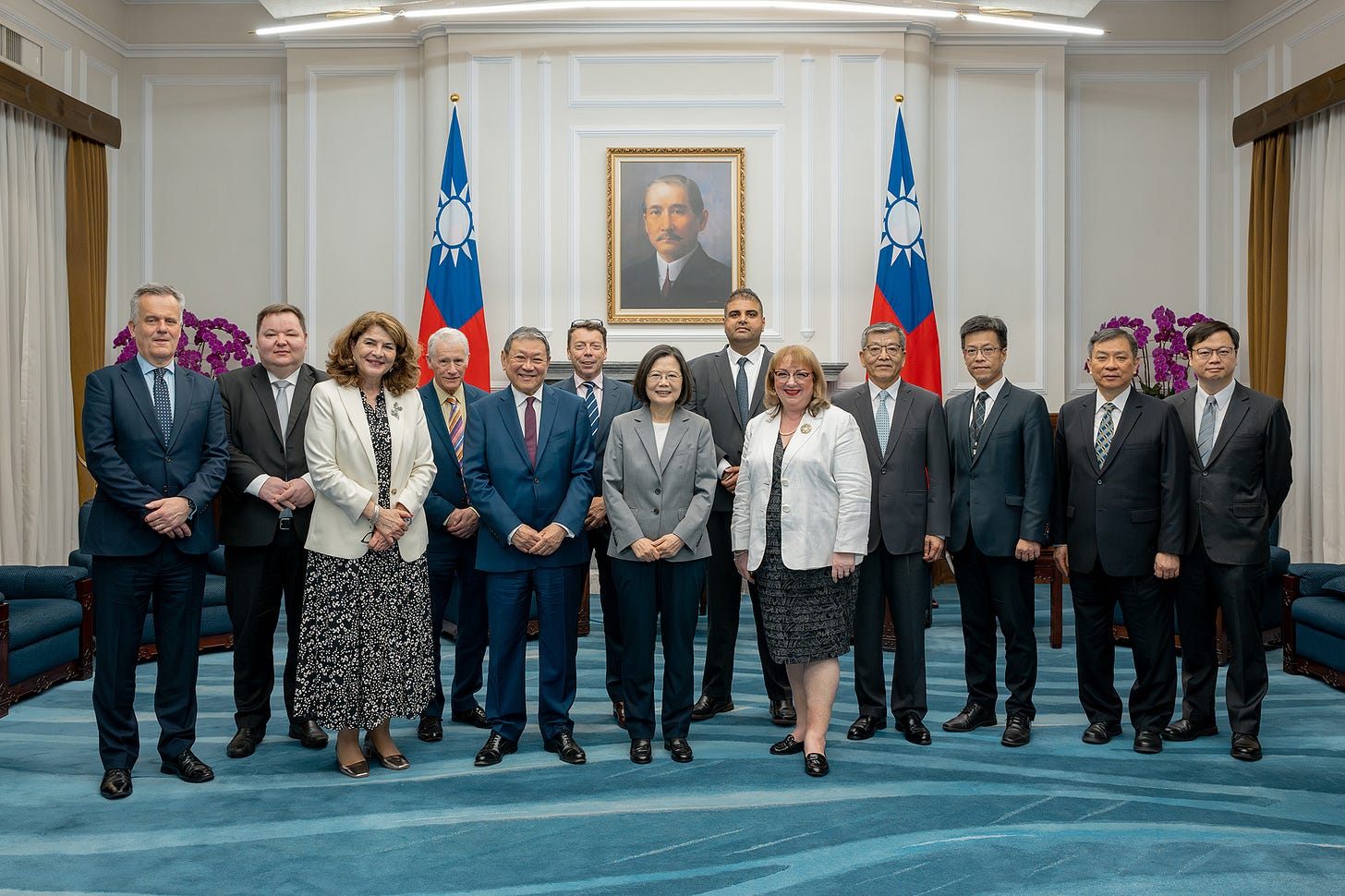Hello,
Although the internet has produced many incredibly annoying people, political ideas, and - worst of all - political people - it does serve as an excellent vehicle for finding ideas outside your bubble. For example, several analysts in Southeast Asia began circulating this new sentiment survey at the beginning of the week, which examines the attitudes of a small group of respondents from various ASEAN nations on some pressing questions. Published by the ASEAN Studies Centre at ISEAS - Yusof Ishak Institute in Singapore, these points should be noted by Westminster:
The key concerns for the polled nations are unemployment and economic recession (57.7%), the impact of climate change (53.4%), and the intensifying economic tensions between major powers (47.0%).
Strategic uncertainties causing stress are the Israel-Hamas conflict (46.5%), aggressive behaviour in the South China Sea (39.9%), the Russia-Ukraine war (39.4%), and global scam operations (39.4%). Implications arising from the January 2024 Taiwan elections ranked last (7.6%).
China continues to be seen as the most influential economic (59.5%) and political-strategic (43.9%) power, outpacing the US by significant margins in both domains. Among ASEAN’s eleven Dialogue Partners, China tops the charts in terms of strategic relevance to ASEAN, followed by the US (8.79), and Japan (7.48). The partners of least strategic relevance are India (5.04), Canada (3.81) and New Zealand (3.70).
China edged past the US to become the prevailing choice (50.5%) if the region were forced to align itself in the ongoing US-China rivalry.
As with everything from the world of polling, these results are best taken with a whack of salt and will have detractors. However, they touch on a wider theme that many in the West are still struggling to deal with: how do we try and convince many of these countries that we have something substantial and fair to offer, and why should they care about trying to uphold the international rules-based order?
The ongoing Israel/Gaza conflict has brought this question into sharp relief. In a recent Foreign Affairs essay, Crisis Group’s CEO Comfort Ero noted that “Across Africa, Asia, and Latin America, officials and citizens believe that the United States and some of its allies in Europe have greenlighted Israel’s wholesale destruction of Gaza. The perception of double standards is stronger than ever.” I suspect that Westminster’s political blob has yet to consider, and perhaps internalise, just how different its views on the Isreal/Gaza conflict are from many of the constituent countries that encompass the UK’s Indo-Pacific push. Several - Malaysia, Brunei, and Indonesia - have large Muslim populations, and the perception that the collective ‘West’ has allowed Israel to go too far in response to the horrific atrocities in October is something I hear about regularly from regional friends. In this sense, the latest incident to draw scrutiny was an Israeli airstrike on foreign national aid workers on Monday, even though food charity World Central Kitchen (WCK) for whom they worked said they had coordinated the convoy’s movements with the Israel Defense Forces. Three of those killed were British.
This sort of stuff matters, because it feeds into a perception that many liberal and illiberal elites have outside the G7: that the West is selective about applying support, sanctions and punishments. It is too easy to draw back from this discussion by claiming this as ‘Whataboutism’ - but the above results chime with what I hear when I speak to people outside the SW1 bubble. It also goes a small way to explaining why, despite Western criticism of China’s Wolf Warrior diplomacy, Beijing is still finding fans out in the world. If British politicians are serious about defending democracy and the Rules-Based International Order, they need to have answers for some of the more legitimate questions pointed out by both adversaries and potential partners.
There will not be a briefing note next week.
- Sam Hogg, Editor
In this week’s briefing, we examine:
NATO
Labour visit to Taiwan
Poor financial results
Diplomacy Tracker
Politics

Parliament is on
holidayRecess, which means politicians are back in their constituencies getting ready for local elections next month. Some, however, have escaped the shores of the UK to venture afar.Labour Friends of Taiwan sent a seven-person delegation to Taiwan. Chaired by Lord Leong, the party included Sharon Hodgson MP, Andrew Western MP, Diana Johnson MP, Lord Grantchester and Lord McNicol. They met outgoing President Tsai Ing-wen (蔡英文), Foreign Minister Joseph Wu (吳釗燮), and Legislative Speaker Han Kuo-yu (韓國瑜), and visited the Ministry of Economic Affairs, National Development Council, National Science and Technology Commission, Ministry of Education, and Mainland Affairs Council, according to Taiwan News. There was talk about Labour cooperating on Taiwanese SME development too.
In a separate event, former Lord Speaker Baroness D’Souza told the Taiwan Foreign Correspondents’ Club that the next UK Government should establish full diplomatic relations with Taiwan. This is not the policy of either the Government nor the Opposition Labour Party.
While the delegation was visiting, a significant earthquake hit the island. A number of senior British officials offered support and condolences:
Foreign Secretary Lord David Cameron: ”Following the tragic earthquake in Taiwan overnight, my thoughts are with the people of Taiwan, especially those who have lost loved ones. The UK stands ready to support in any way we can.”
Minister for the Indo-Pacific Anne-Marie Trevelyan: “Thoughts and prayers for all those families affected by Taiwan earthquake.”
Labour’s Shadow Minister for Asia Catherine West: “My sincere condolences to the people of Taiwan this morning as they face the aftermath of the worst earthquake in decades, and the heartbreaking loss of lives. Taiwan's people will be in our thoughts in the days and weeks ahead.”
UK representative John Dennis: “It is clear that this morning’s tragic earthquake in Taiwan has caused suffering and damage on a major scale. Our heartfelt condolences and sympathies to all those who have lost loved ones, or otherwise been affected.”
Chair of the Foreign Affairs Committee Alicia Kearns: “My condolences to the people of Taiwan and President Tsai following the extreme earthquakes. My thoughts are with you, and I hope every person trapped can be safely rescued, and you can rebuild in peace. At this difficult time I hope our friends in Japan and the Philippines are safe too.”



